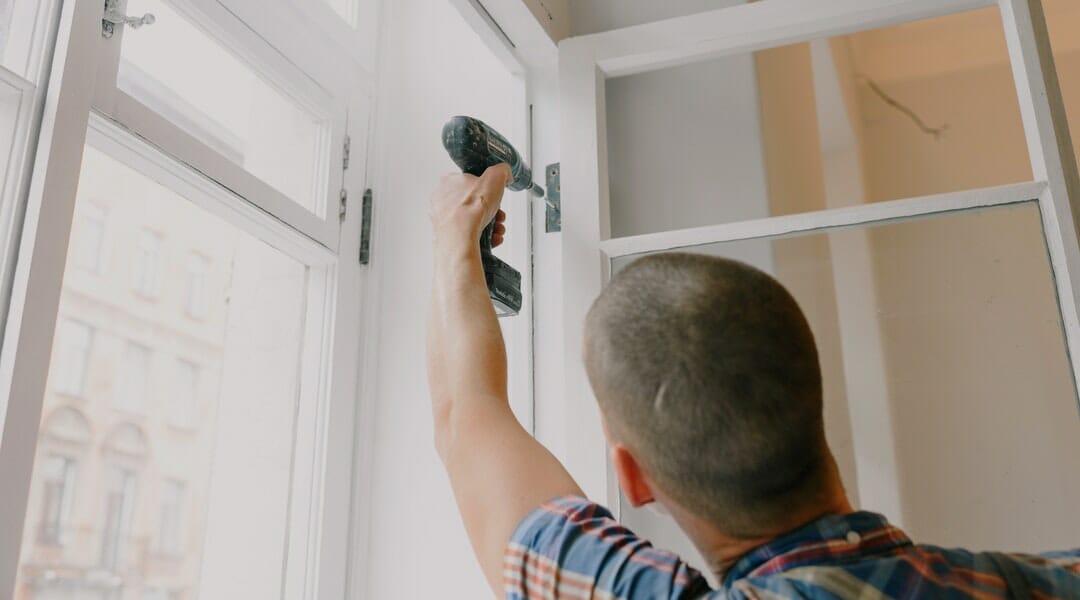More and more people are turning to rented accommodation. According to the Guardian, around 5m households in 2015, or 21% of the total, were in private rented accommodation, rising to 5.79m (or 24%) in the following five years.
With these figures, it is no wonder people are considering becoming a landlord for the first time. However, initially it can be a daunting and challenging experience, so it is worth learning as much as possible before venturing forth.
Is Having a Rental Property Worth It?
If you are considering a career in rental property, you may be questioning whether it is worth pursuing it further. First-time landlords often have concerns regarding the potential risk factor of investing in the rental property industry and whether it will provide a return on investment.
Rental market value is forecast to continue rising by 2.5 percent in 2019, while rental prices are expected to increase by 15 percent over the next five years. With more tenants seeking rental property than ever before, supply and demand are driving the average rental prices higher. Rental prices are dictated by location and type of property; for example, the average London rental is quoted as £1615 per month compared to the rest of the UK, which has an average rental price of £777 per month.
Financing your Rental Property
If you are looking to buy a property to rent out, you need to first decide how to finance the purchase. If you are looking to buy property quickly, or if you want to buy from auction, short-term finance such as a bridging loan can be an ideal solution.
Applications are assessed quickly and money can be transferred within days of the initial application, which is ideal when time is of an essence. You need to consider your exit strategy with bridging loans, which usually takes the form of a buy-to-let mortgage. This type of funding takes longer to be approved, which is why many people choose a bridging loan initially, giving them time to secure long-term finance.
Costs Versus Return
One of the most important questions first-time landlords ask is how much return they will achieve on their initial investment. Buying a property to let has two possible revenue streams; an immediate income from the rental value, and capital from the long-term property growth value.
There are of course costs involved with buy-to-let properties. The first is associated with the financing to purchase the property. Whatever funding source you use, there will be associated fees to pay.
Costs will include (but not limited to) legal fees, survey and valuation costs, stamp duty and income tax. There will also be maintenance costs, such as repairs and redecorating. You will also be subject to other regular expenses such as letting agent’s fees (if you use a letting agent), landlord’s insurance, rent insurance (designed to provide cover in the event of non-paying tenants or difficulty with tenants who refuse to leave your property). You will also have to undergo annual safety checks on the boiler, water and other systems.
You won’t be responsible for the day-to-day bills and council tax unless your rent includes these on the lease. If you decide to rent to people on an HMO (house in multiple occupancy) basis, bills are often included and this is reflected in the rental price charged per room.
All these factors have to be included in your rental price in order for you to see a reasonable return on your investment.

Tips for Renting Property
Reasons for renting out property are varied. Some people make a conscious decision to start a business, whereas others become accidental landlords, often as a result of inheriting property. Whatever the reason, having made the decision to begin investing in rental property, it’s important to understand exactly what is involved and how to get the best from your business. Below we have put together some of our best tips for renting property to help you get the best experience.
1. Have A Watertight Lease
According to Gov.uk your tenancy agreement should include as a minimum:
- the names of all people involved
- the rental price and how it’s paid
- information on how and when the rent will be reviewed
- the deposit amount and how it will be protected
- details of when the deposit can be fully or partly withheld (for example to repair damage caused by tenants)
- the property address
- the start and end date of the tenancy
- any tenant or landlord obligations
- an outline of bills tenants are responsible for
- landlord access rights to the property
Include any other detail that you feel it is important to clarify regarding the property, as it is too late to add it after it has been signed. Make sure it covers every eventuality and answers every question your tenant might have. It is up to you whether you allow pets or children, but make it clear in the agreement.
Make sure it’s been reviewed and/or drafted by a legal professional. A template downloaded from the internet probably will not suffice.
2. Communication is Key
To make the most of your landlord experience, you need to establish a positive relationship with your tenants. This type of relationship will path the way to a long-term and straightforward tenancy, which is the aim of all landlords. Clear communication is one of the most important aspects of achieving this, as when both parties communicate well, they build trust in each other.
You should always be professional in your communication and respect your tenant’s barriers. However, make sure you are approachable and flexible; remember that different people respond to different approaches.
Most issues arise from unclear communications. If your tenant does not know what to expect from you or what your expectations are, it is likely to lead to conflict. Start as you mean to go on by explaining the tenancy agreement and ensure they understand what each aspect means.

3. Hire A Rent Collector
There are various methods of collecting rent and different landlords will feel more comfortable with different methods. When choosing which method to use, consider how many rental properties you have and the distance they are from you. You may also need to think about whether you are happy to interact directly with your tenants or if you prefer to converse online through technology.
You can choose to be paid online through a rent collection service or you can choose the BACS system through your bank. Tenants can also be offered the option of posting your rental cheque each month or, if nearby, handing it to you in person. Alternatively, you can use a rent collection service.
By using a rental collection service, you are remaining impartial and not subject to sob stories designed to put off payment. Rent collectors are professionals who have heard every story and know how to deal with them. If you live far from the property or do not like handling the money aspect a rent collector can be an effective method. There will be a monthly charge for the service, but it not only frees your time up but also ensures you receive your rent on time every month.
4. Appreciate Good Tenants
Many landlords say that the most important aspect of their business is to find good tenants. In the Landlords Survey by Your Move, it’s quoted that;
“The most important thing for landlords is always finding the right tenants. Most landlords prioritise selecting and keeping good tenants over maximising their short-term profit. When you’ve invested a lot of money in buying and maintaining a property, you want to know your investment is going to be properly looked after by a reliable tenant.”
There are a few methods to help you find good tenants. You can use online letting agents for a small fee, who will market your property. You can also advertise yourself across social media, offline adverts, and word-of-mouth.
When potential tenants start to apply, the next step is to put them through a screening process. You don’t have to grant viewing access to all applicants as this opens it up to tyre kickers and time wasters. Instead, go through the applications and check for certain criteria, including employment, salary, guarantor, references and lifestyle choices.
Once you have done this then speak to each of the potentials over the phone and run through a few questions with them all. You can also ask them to fill in the tenancy application before they visit. By the end of this screening process, you should have a list of those to invite to view the property. When you meet them in person you can then ask them further questions and judge whether you feel they are a good fit for your property.
The perfect tenant is worth their weight in gold, so looking after them should be a priority. Keep the property in good condition and respond quickly to any questions or concerns the tenants might have. Don’t interfere unless requested to and respect your tenants’ privacy at all times.

5. Cut Your Losses Early
If you are unlucky enough to have a bad tenant, you need to deal with them as quickly as possible. A tenant who gets off to a bad start will usually continue being a bad tenant, so recognising a poor tenant early will help lessen the long-term issue.
You may occasionally take on a bad tenant despite your best efforts, so make sure you insist on a monthly check of the property for the first three months, then a three-monthly check after that. This will allow you to spot the warning signs of bad tenants early on. Check how clean they keep your property and look carefully for any damage.
Another issue is non-paying tenants. The process to follow includes: keep a record of the payments and if any are missed you would in the first instance need to write to your tenant requesting the rent. If it is not forthcoming within 14 days, send the guarantor (if a guarantor was required for the tenant(s)) a letter. This is usually enough to secure payment, but if not, after 21 days send a final letter to both tenant and guarantor letting them know you will be taking legal action.
Summary
There’s no doubt that becoming a landlord can be a rewarding, exciting and financially lucrative path to follow, although it is not without its pitfalls. One of the most worrying aspects of any new landlord is coping with periods between tenants. To help lessen this worry, make sure your tenants give you two months’ notice so that you can put the property back on the market in good time. Also, ensure you have a reserve budget in place that can cover a few month’s rental payments or a large maintenance cost on the property. Don’t forget you will need to pay tax on any profit, so make sure you have money put aside for this as well.
However, if you take note of our tips for first-time landlords, and plan your project in advance, your experience should be smooth and straightforward. Before you know it, you will be considering your second property, and then, of course, you can no longer call yourself a first-time landlord. Welcome to the world of buy-to-let.


